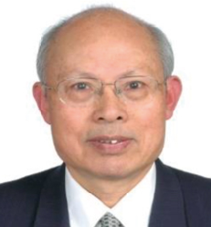
The Law of Paradigm Revolution for Emerging Discipline
Yixin Zhong
University of Posts & Telecommunications, Beijing 100876, China
zyx@bupt.edu.cn
Abstract: The paradigm for a discipline is defined as the scientific worldview and its methodology followed by that discipline. Clearly, the paradigm for a discipline is the supreme commander regulating the research of the discipline. Different discipline should, of course, follow different paradigm.
Further, the paradigm for a discipline can only be summarized from the practice of that discipline. Thus, the paradigm for the discipline will certainly be far lag behind than the occurrence of that discipline.
As result, an emerging discipline will have no its own paradigm available in the initiative stage of its development. It should borrow a paradigm from the discipline existed already. Consequently, the paradigm for an emerging discipline will mismatch with its research needs, leading the emerging discipline being in an abnormal state of development.
To solve the problem of mismatching between the paradigm and the research needs, the paradigm for emerging discipline should be summarized. And then replacement of the paradigm borrowed with its own paradigm should be carried out. This is so-called the paradigm revolution in emerging discipline.
Artificial intelligence (AI in brief) is an emerging discipline in the present time. Therefore, the paradigm revolution in AI is absolutely necessary.
Bio: Yixin Zhong, professor at AI School, Beijing University of Posts and Telecommunications (BUPT for short), Beijing 100876, China.
He received his Bachelor degree (1962) and Master degree (1965) both from the Dept. of Engineering of Communications, BUPT. From 1979 to 1981, he was an academic visitor to the Dept of Electrical Engineering, Imperial College for Science and Technology, London.
In the rest of the time from 1965 to the present he has been a Lecturer, Associate Professor and Full Professor, Dean of the Dept. of Information Engineering, and Vice President of BUPT.
The major interests for his teaching and research include Communication Theory, Shannon Theory, Information Science, Artificial Neural Network, Artificial Intelligence. He has published over 520 papers in above areas (most in Chinese) and 16 manuscripts, such as Pseudo-Coded Communication Theory (1979), On Generalized Information Theory (1984), Intelligence Theory and Technology (1992), Principles of Information Science (1988, 1996, 2002, 2005, 2013), Introduction to Information Science and Technology (2007, 2010, 2015), Principles of Artificial Intelligence (2007), Principle of Advanced AI (2014), Theory of Artificial Intelligence based on the Mechanism of Intelligence Creation (2021), General Theory of Intelligence (2023), and etc.
He has served as Associate Editor for IEEE Trans on Neural Network (1993-2005), President of Asia-Pacific Neural Network Assembly (2001-2002), Chair of the SIG for Communication Theory of China Institute of Communication (1990-1995), President of China Association for Artificial Intelligence (2001-2010), Vice President of World Federation of Engineering Organizations (WFEO) (2007-2010), Chairman of WFEO Standing Committee of Information and Communication (2007-2010), Chief Editor for the book series on Intelligence Science and Technology (2013-2018), Chair of China Chapter under the International Society for the Study of Information (2016 - ), President of AI Institute for Jinan University (2017 - ), President of International Society for the Study of Information (2021-2023).